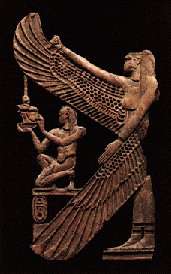Advanced Writing Course Objectives:

The PAS 350 Advanced
Writing student has ten (10) primary objectives in taking this course. Those
objectives are:
ü The course will increase the student’s ability to
analyze and comprehend university-level texts;
ü The course will expand and enhance, through culturally
diverse readings, the awareness of rhetorical strategies as well as the abuses
and uses of language;
ü The course will increase the critical reasoning skills
as they reflect the interdependence of critical thinking and written discourse;
ü The course will build confidence, reduce writing
anxiety, and strengthen personal voice;
ü The course will reinforce the theory and practice of
writing as a recursive process;
ü The course will help students understand the many contexts
for writing, including timed writing, and develop appropriate strategies for
the writer’s multiple purposes and audiences;
ü The course will develop fluency and style by
encouraging word and sentence variety, increasing vocabulary, and using Edited
American English;
ü The course will increase proficiency in research
techniques required by various University disciplines and familiarizes students
with appropriate style sheets;
ü The course will definitely facilitate the use of basic
computer applications – word processing, email, and Internet access – and other
technological media including HyperNews and
PowerPoint; and
ü The course will promote writing as a means of
participation in democracy and as a tool for social change.
Course Outcomes
The
PAS 350 Advanced Writing student may expect to realize 21 outcomes
directly and/or indirectly as a result of meeting the stated objectives for
this course. Those outcomes include the following:
ü A developed facility at examining explicit
relationships that exist between general concepts and specific details;
ü An enhanced understanding of the relationships among
sentence structures, word choice, and meaning;
ü The ability to read critically about ideas and issues,
including multicultural perspectives; analyze and synthesize information; draw
inferences from data; draw conclusions from arguments; and distinguish fact
from fiction;
ü The ability to analyze message, audience, language
choice, tone, purpose, and author’s ethos in selections from a text;
ü The ability to comprehend and critically assess
writings that reflect multicultural images and perspectives;
ü The ability to recognize logical fallacies, biased
language, idioms, slang, jargon, and tone;
ü The ability to develop ideas with logical support,
including the use of informed opinion, facts, and their interpretations;
ü The ability to write critically about ideas, including
multicultural perspectives; analyze and synthesize information; draw inferences
from data; draw conclusions from arguments; and distinguish facts from opinion;
ü The ability to write both independently and in
collaboration with others;
ü The ability to assess and address appropriately the
character and needs of an explicit audience;
ü A facility in using different genres in writing (e.g.,
autobiography, editorials, and case studies) for different academic disciplines
or discourse communities;
ü The ability to apply the concepts of
subordination/coordination; abstract/concrete words; general/specific examples;
and cohesion;
ü Development of vocabulary appropriate to the subject
and/or topic;
ü The ability to effectively use the syntactic and
mechanical conventions of Edited American English (.g., grammar, usage,
mechanics, and diction);
ü The ability to integrate one’s own ideas with those of
others, using appropriate documentation;
ü The ability to effectively use library and online
resources;
ü The ability to use a style sheet consistently, such as
MLA or APA style sheets;
ü Knowledge and mastery of basic word processing, email,
WebCT, PowerPoint and the Internet;
ü The ability to use computer technology in the writing
process, including research and documentation;
ü An awareness and appreciation of diverse cultures and
contexts of human experience;
ü The ability to show ways that writing can contribute
to society and be an instrument for change; and
ü Lastly, the student will be able to demonstrate the
ability to write for possible publication.